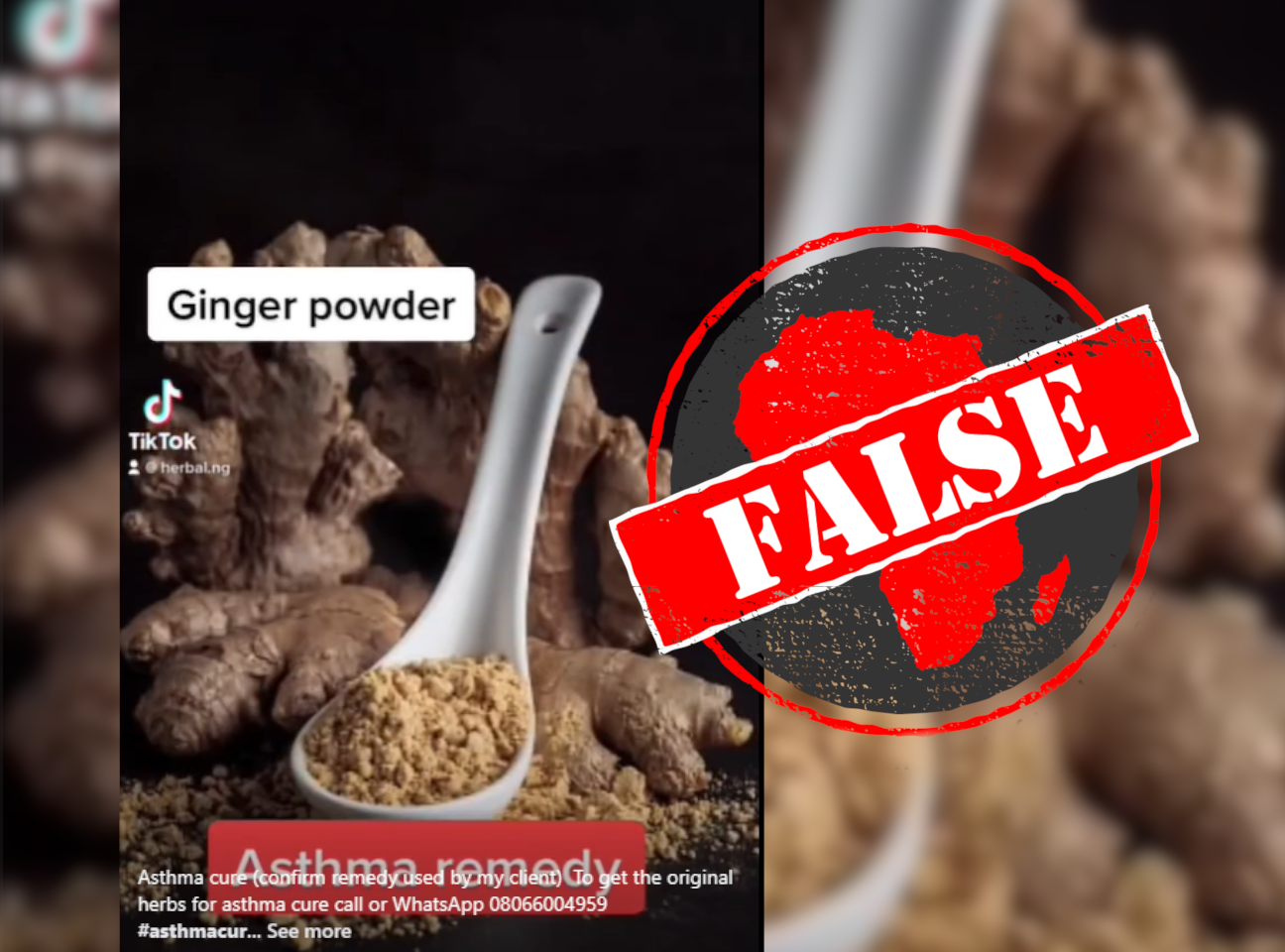IN SHORT: A Facebook post claims that a combination of fenugreek powder, olive oil, ginger powder and honey can cure asthma. But there is no evidence to support this.
A Facebook post claims that mixing fenugreek powder, olive oil, ginger powder and honey will cure asthma.
Attached to the post is a video that displays the listed ingredients as a slideshow. Its caption reads: “Asthma cure (confirm remedy used by my client). To get the original herbs for asthma cure, call or WhatsApp 08066004959.”
The video was originally posted on the short-form video platform TikTok, by an account with a similar name as the Facebook user and listing the same Nigerian phone number.
Asthma is a chronic lung condition that causes difficulties in breathing. It can be caused by allergies, environmental factors such as fumes, and respiratory infection.
Its main symptoms are wheezing – a whistling sound when breathing – as well as breathlessness, a tight chest and coughing. When these symptoms get worse they can cause an asthma attack, which can lead to death.
But is this mixture the cure for asthma? We checked.

The ingredients
Fenugreek is a flavourful herb belonging to the pea family. It is prized for its aromatic seeds, which are used as a spice. It was originally found in southern Europe but is now commonly grown across central and southeastern Europe, western Asia, India and northern Africa.
Ginger is an ancient herb used in Chinese and Indian medicine to improve digestion and relieve nausea, vomiting and other ailments.
Olive oil comes from ripe olives, ranging in colour from yellow to green. It’s produced all over the world, with variations depending on ripeness and location. As well as cooking, it’s used for many other things, including preserving food, making soap, cosmetics and medicine.
Honey is a sweet liquid that bees make from flower nectar. It is mostly used as a sweetener in food, to heal wounds and burns and in cosmetics.
The remedy won’t cure asthma, experts say
The post doesn’t say how to mix the ingredients, or when and for how long to take the mixture. This lack of details should raise eyebrows.
Gregory Erhabor, a professor of pulmonology at the College of Health Sciences, Obafemi Awolowo University in Nigeria, told Africa Check that the combination had not been scientifically proven.
“In as much as the listed items can have their benefits to humans, in my over 30 years of experience, it has not been scientifically proven that combining those ingredients cures asthma in any way. Traditionally, it might be useful for other ailments but for asthma, going to a doctor to get a proper diagnosis and treatment makes the process easy,” he said.
We also contacted Chigozie Onyedum, a professor of pulmonology at the University of Nigeria, Nsukka, who also debunked the claim.
“There is no evidence to back such a claim because it has not been proven.”
There is no cure for asthma, most people who suffer from it use an inhaler, a device that allows you to breathe in the medicine.
False claims about asthma cures can be dangerous and lead to people abandoning medically sound treatments.
Republish our content for free
For publishers: what to do if your post is rated false
A fact-checker has rated your Facebook or Instagram post as “false”, “altered”, “partly false” or “missing context”. This could have serious consequences. What do you do?
Click on our guide for the steps you should follow.
Publishers guideAfrica Check teams up with Facebook
Africa Check is a partner in Meta's third-party fact-checking programme to help stop the spread of false information on social media.
The content we rate as “false” will be downgraded on Facebook and Instagram. This means fewer people will see it.
You can also help identify false information on Facebook. This guide explains how.


Add new comment